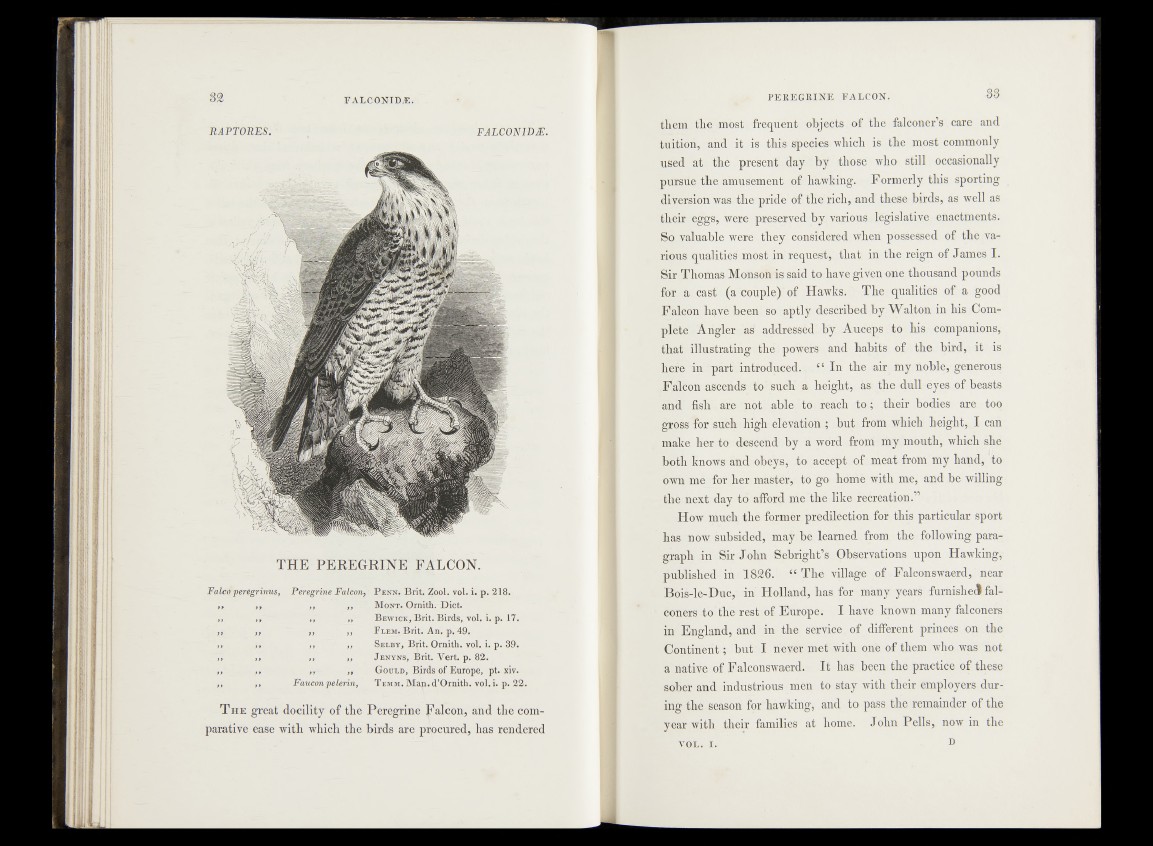
RAPTORES. FALCONIDÆ.
TH E P E R E G R IN E FALCON.
Falco peregrinus, Peregrine Falcon,
,, Faucon pelerin,
P enn. Brit. Zool. vol. i. p. 218.
Mont. Ornith. Diet.
B ewick, Brit. Birds, vol. i. p. 17.
F lem. Brit. An. p. 49.
Selby, Brit. Ornith. vol. i. p. 39.
J enyns, Brit. Vert. p. 82.
Gould, Birds o f Europe, pt. xiv.
T emm. Man. d’Ornith. v o l.i. p. 22,
T h e great docility of the Peregrine Falcon, and the comparative
ease with which the birds are procured, has rendered
them the most frequent objects of the falconer’s care and
tuition, and it is this species which is the most commonly
used at the present day by those who still occasionally
pursue the amusement of hawking. Formerly this sporting
diversion was the pride of the rich, and these birds, as well as
their eggs, were preserved by various legislative enactments.
So valuable were they considered when possessed of the various
qualities most in request, that in the reign of James I.
Sir Thomas Monson is said to have given one thousand pounds
for a cast (a couple) of Hawks. The qualities of a good
Falcon have been so aptly described by Walton in his Complete
Angler as addressed by Auceps to his companions,
that illustrating the powers and habits of the bird, it is
here in part introduced. ei In the air my noble, generous
Falcon ascends to such a height, as the dull eyes of beasts
and fish are not able to reach to ; their bodies are too
gross for such high elevation ; but from which height, I can
make her to descend by a word from my mouth, which she
both knows and obeys, to accept of meat from my hand, to
own me for her master, to go home with me, and be willing
the next day to afford me the like recreation.”
How much the former predilection for this particular sport
has now subsided, may be learned from the following paragraph
in Sir John Sebright’s Observations upon Hawking,
published in 1826. “ The village of Falconswaerd, near
Bois-le-Duc, in Holland, has for many years furnished falconers
to the rest of Europe. I have known many falconers
in England, and in the service of different princes on the
Continent; but I never met with one of them who was not
a native of Falconswaerd. It has been the practice of these
sober and industrious men to stay with their employers during
the season for hawking, and to pass the remainder of the
year with their families at home. John Pells, now in the